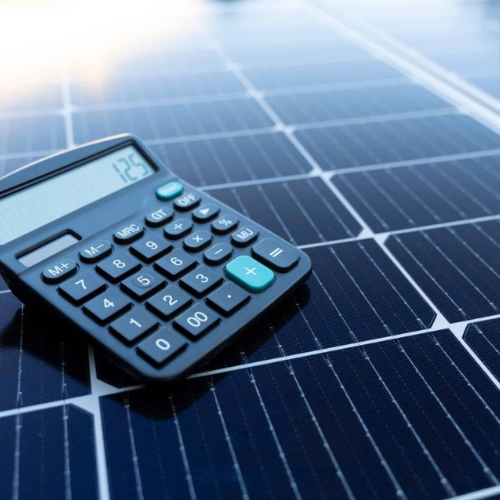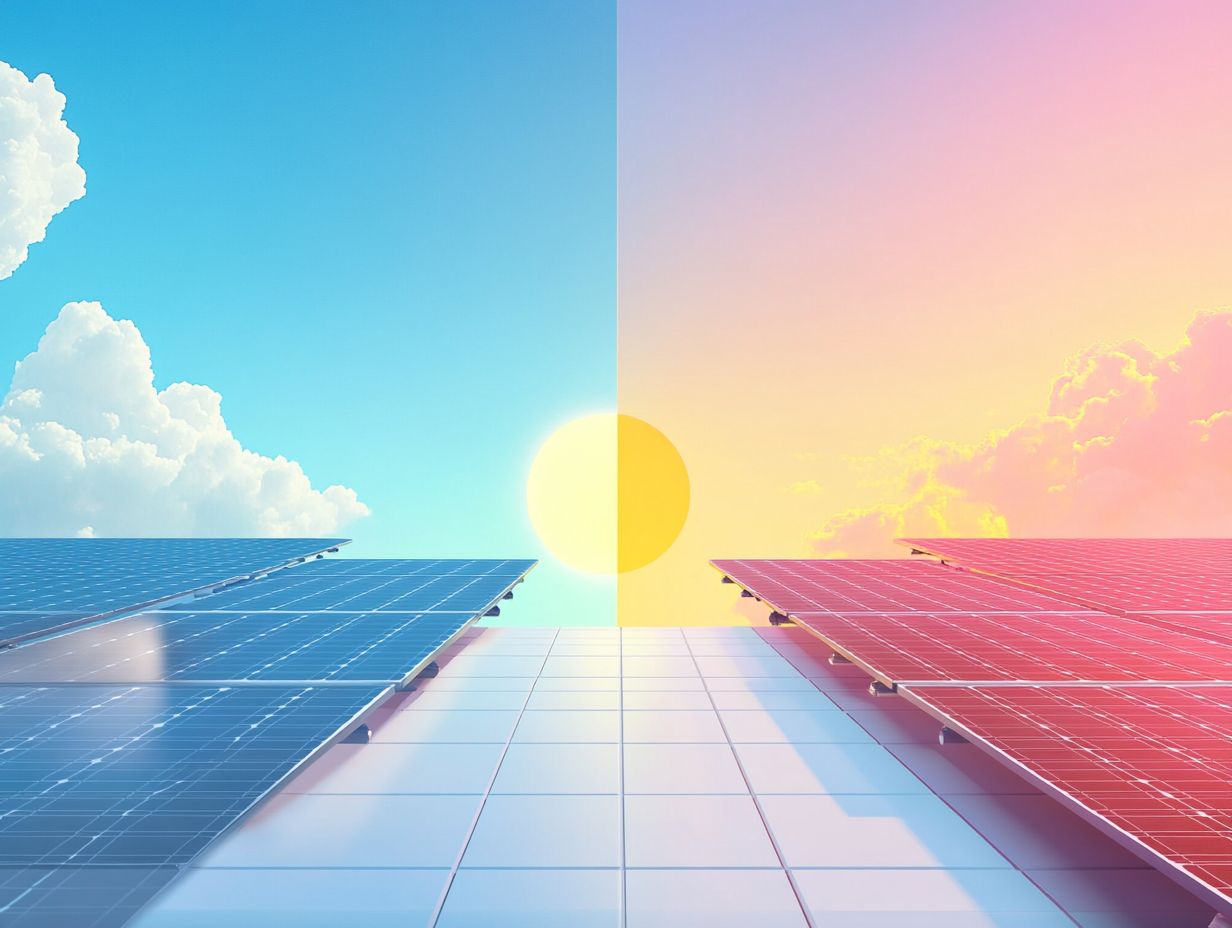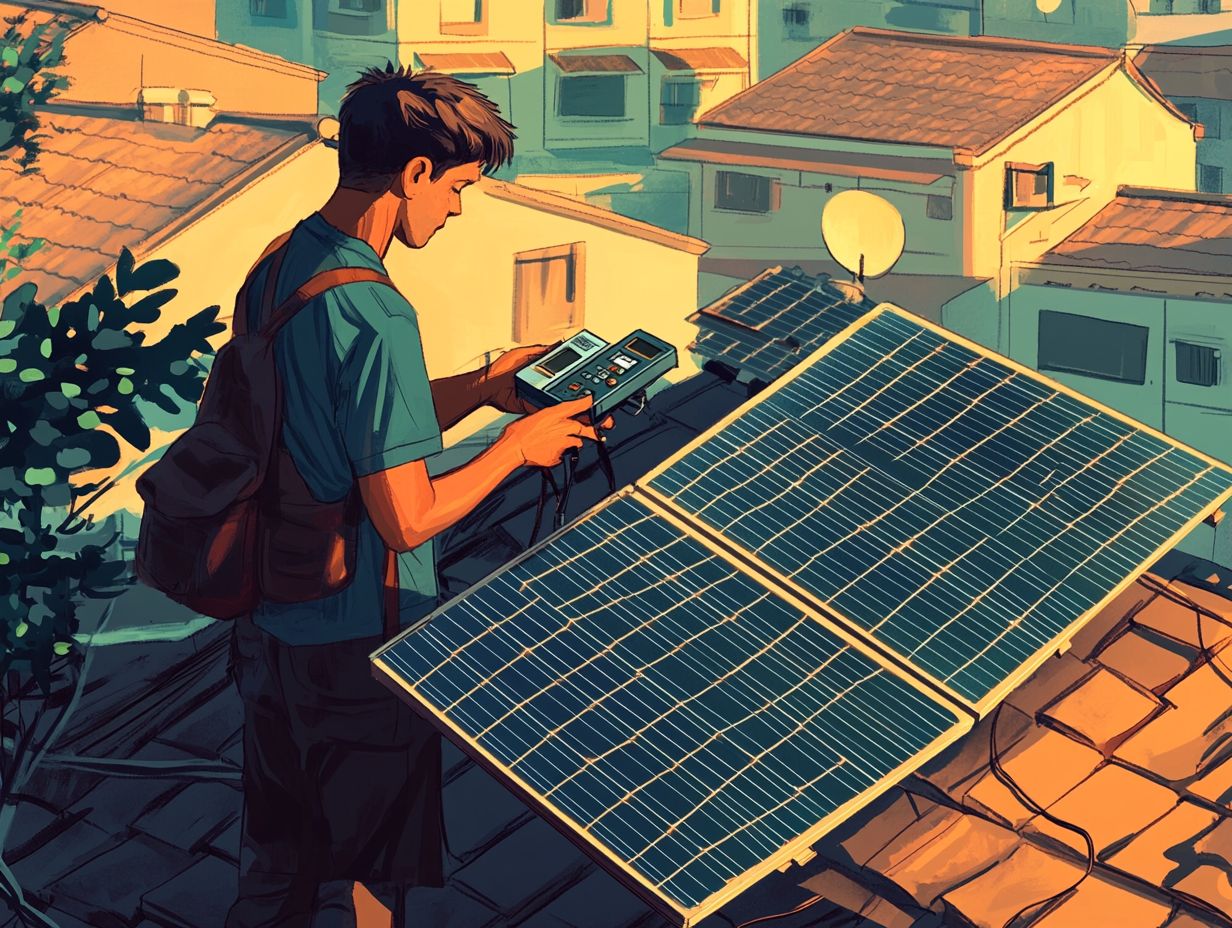Contents
- 1 Choosing the Right Solar Panel System for Your Trailer Home
- 2 Installing Solar Panels on Your Trailer Home: Step-by-Step Guide
- 3 Maintaining and Caring for Your Solar Panels
- 4 Maximizing the Efficiency of Your Solar Panel System
- 5 Connecting Your Solar Panel System to Your Trailer Home’s Electrical Grid
- 6 Financing Options for Solar Panel Installation on Your Trailer Home
- 7 Government Incentives and Rebates for Solar Panel Installation on Trailer Homes
- 8 FAQs
- 8.1 What are solar panels for trailer homes?
- 8.2 How do solar panels work for trailer homes?
- 8.3 What are the benefits of using solar panels for trailer homes?
- 8.4 What factors should be considered when installing solar panels for a trailer home?
- 8.5 Are there any limitations to using solar panels for trailer homes?
As you consider the transition to solar power for your trailer home, it’s essential to grasp the myriad benefits that come with this sustainable energy source. One of the most significant advantages is the reduction in your electricity bills. By harnessing the sun’s energy, you can generate your own electricity, which means less reliance on traditional power sources.
This not only saves you money but also provides a sense of independence from fluctuating energy prices. Imagine waking up each day knowing that your energy needs are met by a renewable resource, allowing you to allocate your finances toward other important aspects of your life. Moreover, solar power is an environmentally friendly option that contributes to reducing your carbon footprint.
By choosing solar energy, you are actively participating in the fight against climate change. The energy produced by solar panels is clean and renewable, unlike fossil fuels that release harmful emissions into the atmosphere. This choice not only benefits you but also helps preserve the planet for future generations.
As you embrace solar power, you become part of a larger movement toward sustainability, inspiring others in your community to consider similar options. Get your free solar assessment at https://www.solarenergy4u.org/free-pro-advice/.
Key Takeaways
- Solar power can provide cost savings, energy independence, and environmental benefits for your trailer home.
- Consider factors such as energy needs, space availability, and budget when choosing the right solar panel system for your trailer home.
- Follow a step-by-step guide for installing solar panels on your trailer home, including assessing the roof, mounting the panels, and connecting the system.
- Regularly maintain and care for your solar panels to ensure optimal performance and longevity.
- Maximize the efficiency of your solar panel system by adjusting the angle of the panels, monitoring energy production, and using energy-efficient appliances.
Choosing the Right Solar Panel System for Your Trailer Home
Understanding Your Energy Needs
This information will guide you in determining the size and capacity of the solar panel system that will best suit your lifestyle. You may find it helpful to consult with a solar energy expert who can provide insights tailored to your specific situation.
Exploring Solar Panel Options
In addition to capacity, you’ll want to explore the different types of solar panels available on the market. Monocrystalline panels are known for their high efficiency and sleek appearance, while polycrystalline panels are often more affordable but slightly less efficient. Thin-film panels offer flexibility and lightweight options, making them suitable for certain trailer designs.
Making an Informed Decision
Each type of solar panel has its pros and cons, so weigh these factors carefully based on your budget and aesthetic preferences. By doing thorough research and considering your unique needs, you can make an informed decision that will serve you well for years to come.
Installing Solar Panels on Your Trailer Home: Step-by-Step Guide

Once you’ve chosen the right solar panel system for your trailer home, it’s time to dive into the installation process. Start by gathering all necessary tools and materials, including mounting brackets, wiring, and safety equipment. Before you begin, ensure that your trailer is parked in a location with ample sunlight exposure throughout the day.
This will maximize the efficiency of your solar panels once they are installed. The first step in the installation process is to mount the solar panels securely on your trailer’s roof. Use mounting brackets that are compatible with both your trailer and the solar panels you’ve selected.
Follow the manufacturer’s instructions carefully to ensure a secure fit. Once the panels are mounted, you’ll need to connect them to an inverter, which converts the direct current (DC) generated by the panels into alternating current (AC) that can be used by your appliances. This step may require some electrical knowledge, so don’t hesitate to seek professional help if you’re unsure about any aspect of the installation.
Maintaining and Caring for Your Solar Panels
| Aspect | Metric |
|---|---|
| Cleaning | Recommended to clean solar panels at least once every 6 months |
| Inspection | Regular inspection of panels for any damage or debris accumulation |
| Efficiency | Efficiency loss of 0.5% per year if not properly maintained |
| Warranty | Typical warranty of 25 years for solar panels |
After successfully installing your solar panel system, it’s essential to prioritize maintenance to ensure optimal performance over time. Regular cleaning is one of the simplest yet most effective ways to care for your solar panels. Dust, dirt, and debris can accumulate on the surface, reducing their efficiency.
Depending on your location, you may need to clean them every few months or more frequently if you live in a particularly dusty area. A gentle wash with water and a soft brush is usually sufficient; however, avoid using harsh chemicals that could damage the panels. In addition to cleaning, it’s wise to conduct periodic inspections of your solar panel system.
Check for any signs of wear or damage, such as cracks or loose connections. If you notice any issues, address them promptly to prevent further complications down the line. Keeping an eye on your system’s performance through monitoring tools can also help you identify any drops in efficiency early on.
By taking these proactive steps, you can extend the lifespan of your solar panels and ensure they continue to meet your energy needs effectively.
Maximizing the Efficiency of Your Solar Panel System
To get the most out of your solar panel system, consider implementing strategies that enhance its efficiency. One effective approach is optimizing the angle and orientation of your panels. Ideally, they should be positioned to capture maximum sunlight throughout the day.
If possible, adjust their angle seasonally to account for changes in the sun’s position in the sky. This simple adjustment can significantly increase energy production. Another way to boost efficiency is by investing in energy-efficient appliances and lighting within your trailer home.
By reducing overall energy consumption, you’ll allow your solar panel system to meet your needs more effectively. Additionally, consider using smart home technology to monitor and manage your energy usage more efficiently. Smart thermostats and energy management systems can help you identify patterns in your consumption and make adjustments accordingly, ensuring that you’re getting the most out of every watt generated by your solar panels.
Connecting Your Solar Panel System to Your Trailer Home’s Electrical Grid

Connecting your solar panel system to your trailer home’s electrical grid is a critical step that allows you to utilize the energy generated effectively. This process typically involves wiring the inverter to your home’s electrical panel, enabling seamless integration between the two systems. It’s essential to follow local regulations and safety standards during this process to ensure compliance and safety.
If you’re not comfortable handling electrical connections yourself, it’s advisable to hire a licensed electrician with experience in solar installations. They can ensure that everything is connected correctly and safely while also helping you navigate any necessary permits or inspections required by local authorities. Once connected, you’ll be able to enjoy the benefits of solar power throughout your trailer home while also having the option to draw from the grid when needed.
Financing Options for Solar Panel Installation on Your Trailer Home
Financing options for installing solar panels on your trailer home can vary widely based on your financial situation and preferences. One popular option is a solar loan, which allows you to borrow money specifically for purchasing and installing a solar panel system. These loans often come with competitive interest rates and flexible repayment terms, making them an attractive choice for many homeowners.
Another option is leasing solar panels, where you pay a monthly fee to use a solar system installed on your property without owning it outright. This arrangement can significantly reduce upfront costs while still providing access to renewable energy. Additionally, some companies offer power purchase agreements (PPAs), where you agree to buy electricity generated by the solar panels at a predetermined rate.
Exploring these financing options can help make solar power more accessible and affordable for your trailer home.
Government Incentives and Rebates for Solar Panel Installation on Trailer Homes
When considering solar panel installation for your trailer home, it’s essential to explore government incentives and rebates that can significantly reduce costs. Many states offer tax credits or rebates for homeowners who invest in renewable energy systems like solar panels. These incentives can vary widely depending on where you live, so it’s worth researching local programs that may be available to you.
In addition to state-level incentives, there are often federal tax credits available for solar installations as well. The federal government has historically offered tax credits that allow homeowners to deduct a percentage of their solar installation costs from their federal taxes. Staying informed about these opportunities can help you maximize savings while making a positive impact on both your finances and the environment through sustainable energy choices.
In conclusion, transitioning to solar power for your trailer home offers numerous benefits ranging from cost savings to environmental impact reduction. By understanding how to choose the right system, install it properly, maintain it effectively, and take advantage of financing options and government incentives, you can make an informed decision that enhances both your lifestyle and sustainability efforts. Embracing solar power not only empowers you as an individual but also contributes positively to the broader community and planet as a whole.
If you are considering installing solar panels on your trailer home, you may want to check out this solar savings case studies article. This resource provides real-life examples of how individuals have saved money by switching to solar energy. By learning from these success stories, you can better understand the potential cost savings and benefits of investing in solar panels for your trailer home.
FAQs
What are solar panels for trailer homes?
Solar panels for trailer homes are photovoltaic panels that convert sunlight into electricity, providing a sustainable and renewable energy source for powering the electrical systems in a trailer home.
How do solar panels work for trailer homes?
Solar panels for trailer homes work by capturing sunlight and converting it into direct current (DC) electricity through the photovoltaic effect. This electricity is then converted into alternating current (AC) by an inverter, which can be used to power the electrical systems in the trailer home.
What are the benefits of using solar panels for trailer homes?
Some benefits of using solar panels for trailer homes include reduced electricity bills, environmental sustainability, energy independence, and the potential for off-grid living. Solar panels can also increase the value of a trailer home and provide a reliable source of power in remote locations.
What factors should be considered when installing solar panels for a trailer home?
When installing solar panels for a trailer home, factors such as the available sunlight, the size and orientation of the roof, the energy needs of the home, and local regulations and incentives should be considered. It is also important to ensure that the solar panels are installed by a qualified professional to maximize efficiency and safety.
Are there any limitations to using solar panels for trailer homes?
Some limitations of using solar panels for trailer homes include the upfront cost of installation, the need for adequate sunlight, and the space required for the panels. Additionally, the efficiency of solar panels can be affected by factors such as shading, dust, and weather conditions.








